Diet in pregnancy

Taking care of yourself and your growing baby nutritionally throughout pregnancy is essential. When you're expecting a child, your body's demand for certain minerals spikes, particularly iron, iodine, and folate.
Vitamins and minerals are essential for proper bodily function, and we may get what we need on a daily basis by eating a balanced diet that includes foods from each of the five food groups. In some cases, however, women who are expecting may benefit from taking supplemental vitamins and minerals (such as folate and vitamin D).
Before taking any dietary supplements, consult with your doctor. To evaluate whether or not you actually have to take a supplement, they may suggest a blood test or a visit to a dietician1.
Balanced Diet in Pregnancy2,3:
There is strong evidence that the diet you maintain during pregnancy has an effect on your child's future health and well-being, as well as on your own health and the growth of your baby.
Ensure that you and your baby are getting enough of the nutrients you need by eating a balanced diet that includes meals from each of the five food groups.
You may discover that you are required to consume extra of certain meals in order to guarantee that you are obtaining critical nutrients, however, there is no requirement that you eat enough food for two people.
An ideal diet should include:
- An assortment of colourful fruits and veggies.
- Daily recommendations include at least two portions of fruit and five of veggies.
- Increase your daily grain and cereal intake to 81/2 servings.
- Select foods that are high in fibre and whole grains.
- Make sure you eat enough foods that are high in iron (e.g. red meat or tofu). Pregnant women should eat meals high in iron.
- Make it a habit to consume milk, cheese, yoghurt, and other calcium-rich foods and drinks. The low-fat versions fare better. You should aim for a daily intake of 212 servings.
- Get lots of water and cut back on foods and drinks that are heavy in high fat, added sugar, and salt.
Milk and water are two of the few beverages considered safe during pregnancy. Juice, soda, mineral water, and low-sugar soft drinks in moderation are all acceptable beverages to consume. New research confirms that it's best to abstain from alcohol while pregnant or trying to conceive. A baby's development can be negatively impacted even by very low levels, and these consequences may persist into adulthood4. Caffeine at moderate levels is also regarded to be harmless in tea and coffee. Up to 200 milligrams per day is thought to be safe during pregnancy and nursing5.
Foods to avoid during pregnancy6:
Some foods are dangerous for a pregnant woman to eat because they may contain harmful bacteria or parasites. Pregnancy-related listeria, salmonella, or toxoplasmosis infections are associated with an increased risk of birth defects and stillbirth.
High mercury levels have been found in orange, catfish, shark/flake, marlin, broadbill/swordfish, and certain other fish species leading to birth defects. It's crucial to be picky about the types of fish you eat when expecting.
Saturated fat, added salt, and sugar, as well as alcohol, are all things to be avoided during pregnancy. They don't provide enough of the nutrients you need on a daily basis.
Make sure food has been properly stored and that it hasn't passed its expiration date. It's best to avoid eating something if you have any doubts about whether or not it's safe.
Reference:
- Services, D. of H. & H. Pregnancy and diet. Learn more.
- Nutrition During Pregnancy. Learn more (2019).
- Pregnancy diet: Focus on these essential nutrients. Mayo Clinic Learn more.
- Australia, H. Alcohol and pregnancy. Learn more (2022).
- Australia, H. Caffeine during pregnancy. Learn more (2021).
- Australia, H. Healthy diet during pregnancy. Learn more (2022).

